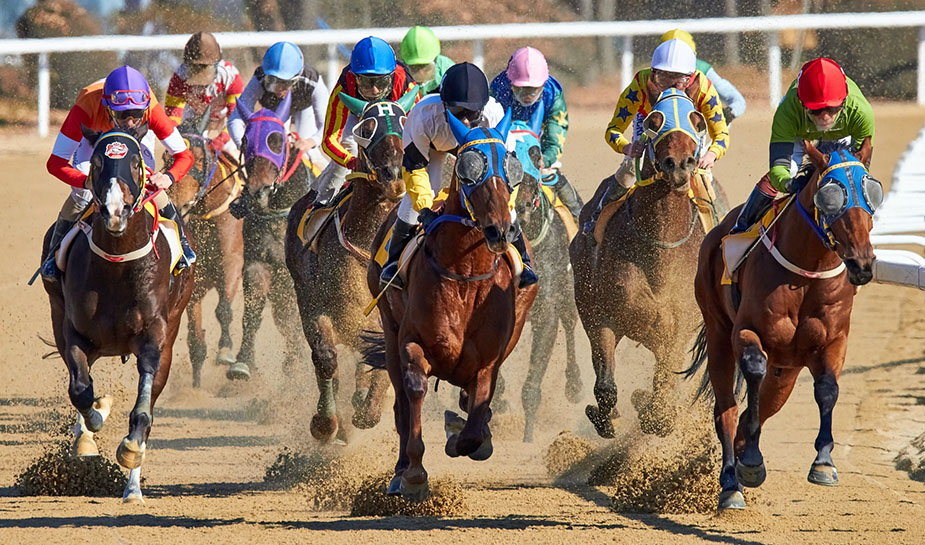
In a previous article, we discussed arbitrage betting. You can use it in matches with two outcomes: win or lose. In other cases you could use Dutch Betting, also called Dutching. Of course, we are talking about New Zealand. Therefore, before we explain the system first briefly explain its origin.
Does the name Arthur Flegenheimer mean anything to you? He was the Accountant of Al Capone, the legendary mafia boss. Arthur was very adept at coming up with administrative constructions. Because of his German background, he was nicknamed Dutch, an English corruption of Deutsch. His full nickname became Dutch Schultz, because he worked at the transport company Schultz when he got into crime.
Betting on horses was in his time, early 20th century, a favorite pastime. He came up with a way to get ahead of bookmakers by betting on horses. An interesting system, but not quite waterproof. There remains a risk, as will be seen below.
Dutch Betting is a way to spread your risks over multiple outcomes. In doing so, you make a calculation in which the payout of the chosen outcomes is (approximately) the same in all cases. We start with an imaginary example
Suppose the odds of a two-chance game are 5 and 10 (so the odds are 1 in 5 and 1 in 10). You quickly see that you have to bet 2x more on 5 to get the same profit as on 10. In other words, if you put 1 dollar on the quote 10, then you need to put 2 dollars on 5. Whichever of the two wins does not matter, you will receive 10 dollars.
As mentioned above, it is an imaginary example. In practice, you will not encounter such a quotation. When you convert the above quote to decimal (1 / 5 = 0.2) you get 0.2 and 0.1. That adds up to 0.3. In practice, an addition of all decimal quotations will almost always be more than 1. And then Dutch Betting doesn't work.
Dutch Betting is interesting in a game with more than two odds, where the addition does not exceed 1. This means that you do not take all the odds of a match into account in your calculation. So, for example football game also falls off. Because the addition of the odds (win, draw and loss) is also above 1; after all, a bookmaker is not crazy.
For the remaining matches, the following applies: the more odds you include in your calculation, the smaller your profit. You will reduce your chances of losing. But there is always a risk (because you can not take all the odds of a match). Therefore, most bookmakers have no problem with it if you use Dutch Betting.
You may already understand how it works from the example above. Let's start with a simple example. By the way, there are calculators for Dutch Betting. However, it is more fun and sensible to use Excel or a similar program. That gives a little more hand and thought work. But that is better for understanding. And you can save your calculations more easily.
Imagine a golf match. Although there are 10 golfers, there are three favorites. And you believe that one of them is going to win. They are listed with the odds 4, 5 and 6 at the bookmaker.
That is, in rounded decimal places, 0.25 (1/4), 0.2 (1/5) and 0.17 (1/6). It is added that 0,25 + 0,2 + 0,17 = 0.62 (therefore lower than 1).
Let's say you want to bet a maximum of $ 30. Then you first calculate the share per participant. In the first, it is 0.25 x 0.62 = 0.41. The bet will then be 0.41 x 30 = 12.16 dollars for that golfer (see excel calculation below for the entire calculation).
You can of course round up the amounts to make your deposit in whole dollars. In your excel calculation, you can immediately see what that means:

You bet on the top three. But if Number 4 has a good day, he might win. Then you lose your bet because you bet on the first three. With Dutch Betting you could have also included numbers 4 and 5 in your bet (or golfer 4 and 7 etc). For illustration, see the example below.
Your total deposit is still $ 30. You have spread your risk further. Now if one of the five golfers wins, you get $ 34.46. A win of $ 4.46 regardless of who wins out of five. The payoff is less and your risk is less. But you still have the risk, of course, that number 6 or an even worse placed golfer will win.
And you can also complete your input here (you can of course also set that directly in your excel spreadsheet).

That a quota like that of the golfers is not unthinkable, we can also see at a darts tournament that will take place at the beginning of 2023. At
BetCity
at the time of this writing, the quotation is as follows:

If we put that in our excel sheet, you get the calculation below:

And you can quickly calculate a higher total deposit:


